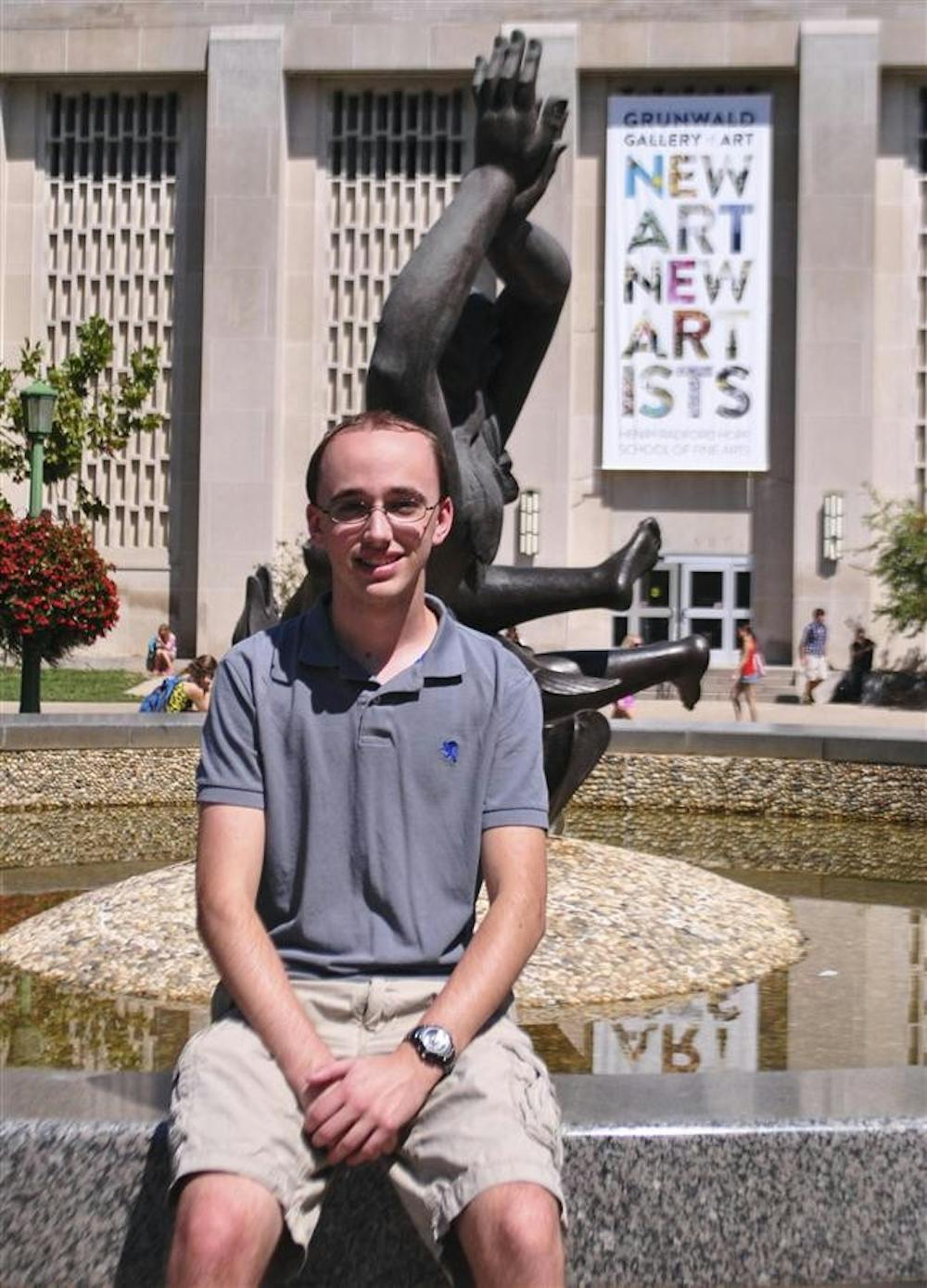Out of 30 to 40 nominees, there can be only one. Sometimes two.
The odds are already slim. Consider that these 30 to 40 undergraduates comprise only a small part of the top 1 percent of the intellectual elite at IU, and the odds become extraordinary.
These are the odds Raymond Parrish II, a junior, beat to become the single Internal Wells Scholar for 2012. Yet few know the program exists.
“I did my undergrad here, and I had never heard of it until I was an instructor,” Levi Morran, National Institutes of Health postdoctoral fellow and mentor to Parrish, said.
According to the Wells Scholar website, the Internal Wells Scholarship is part of the larger Wells Scholar program, named for former IU president Herman B Wells.
Eighteen to 22 students are chosen each year and are granted full tuition, coverage of all mandatory fees and a living stipend for four years of study at IU.
At least one of these 18 to 22 students is a sophomore or junior.
More students know about the incoming freshmen Wells Scholars Program because they must directly apply, said Tim Londergan, director of the Wells Scholars Program and physics professor.
The Internal Wells Scholarship works differently.
“It’s certainly possible that the students don’t know the option exists, because we ask for nominations from the faculty who will nominate the best students that they know,” Londergan said.
Students must have studied at IU for three semesters to qualify, Londergan said. They also cannot directly apply.
“Ray was a student in an introductory biology class I taught in fall 2010,” Morran said. “He was one of the best students in class, and I enjoyed my interactions with him, so I recruited him to help me out in the lab.”
Parrish was nominated by Curtis Lively, distinguished professor of biology and the leader of the lab in which Parrish was recruited to work. There, Parrish studies evolutionary biology and has already written a paper that was published in Science, one of the world’s top journals.
“I’ve met very few people that just absolutely love to learn as much as Ray and even fewer still that have a level of intelligence that helps them absorb everything they see, hear, and observe,” Morran said.
Parrish had no idea he would be nominated.
“It was a complete surprise,” he said in an email. “Dr. Lively never let on that he was considering nominating me.”
Parrish is a biology major with chemistry and music minors.
“It’s an interesting combination,” Londergan said.
Not only does Parrish have “the usual routine of class and studying”, but he works in Lively’s lab, which he said he finds “very fun.”
He is in the midst of launching a new student organization called Folding@IU, of which he is the president. Folding@IU is both a philanthropic and research-oriented program that reaches out to students to involve them in various studies of protein folding, Londergan said.
Parrish is a member of the biology club and Student Pre-Medical Association at IU and has served as an undergraduate teaching assistant in the biology
department.
He volunteers with Dukes Memorial Hospital Auxiliary in, Peru, Ind., according to a press release about the 2012 Wells Scholars.
Parrish said he enjoys writing music, trying out local restaurants and is a New York Yankees fan.
“He’s an incredibly caring and genuine person on top of that,” Morran said. “A rare combination of intellectual ability, sincerity, ingenuity and integrity.”
This combination inspired the scholarship committee to interview Parrish as one of the top six nominees.
“He did the interview between finals,” Morran said. “I teased him about it. ‘Ray thinks he’s so smart that he dresses up to go to finals!’”
It didn’t bother Parrish. In fact, he said because he didn’t have time to get nervous, he was able to relax and be himself.
“The first response from our interview panel is that they would like to give scholarships to all of our finalists,” Londergan said.
“We have many extraordinary students. Frankly, we are kind of sorry that our endowment doesn’t allow us to offer more than one or two, but that is all we can afford.”
Parrish said his future plans are unclear, but he explained he has “strong interests in clinical medicine, medical education, evolutionary genetics and the intersection of the medical science and evolutionary biology in the form of evolutionary medicine.”
He is beginning work on his honors thesis project. Plans currently include using flow cytometry, a tool that helps count very small particles, to study the effect of mutations on thousands of nematodes.
“It’s risky,” Morran said. “We may not have the precision to get good enough measurements.”
He smiled.
“But if there’s anyone, Ray’s definitely the guy to do it.”
Junior named Internal Wells Scholar

Get stories like this in your inbox
Subscribe





